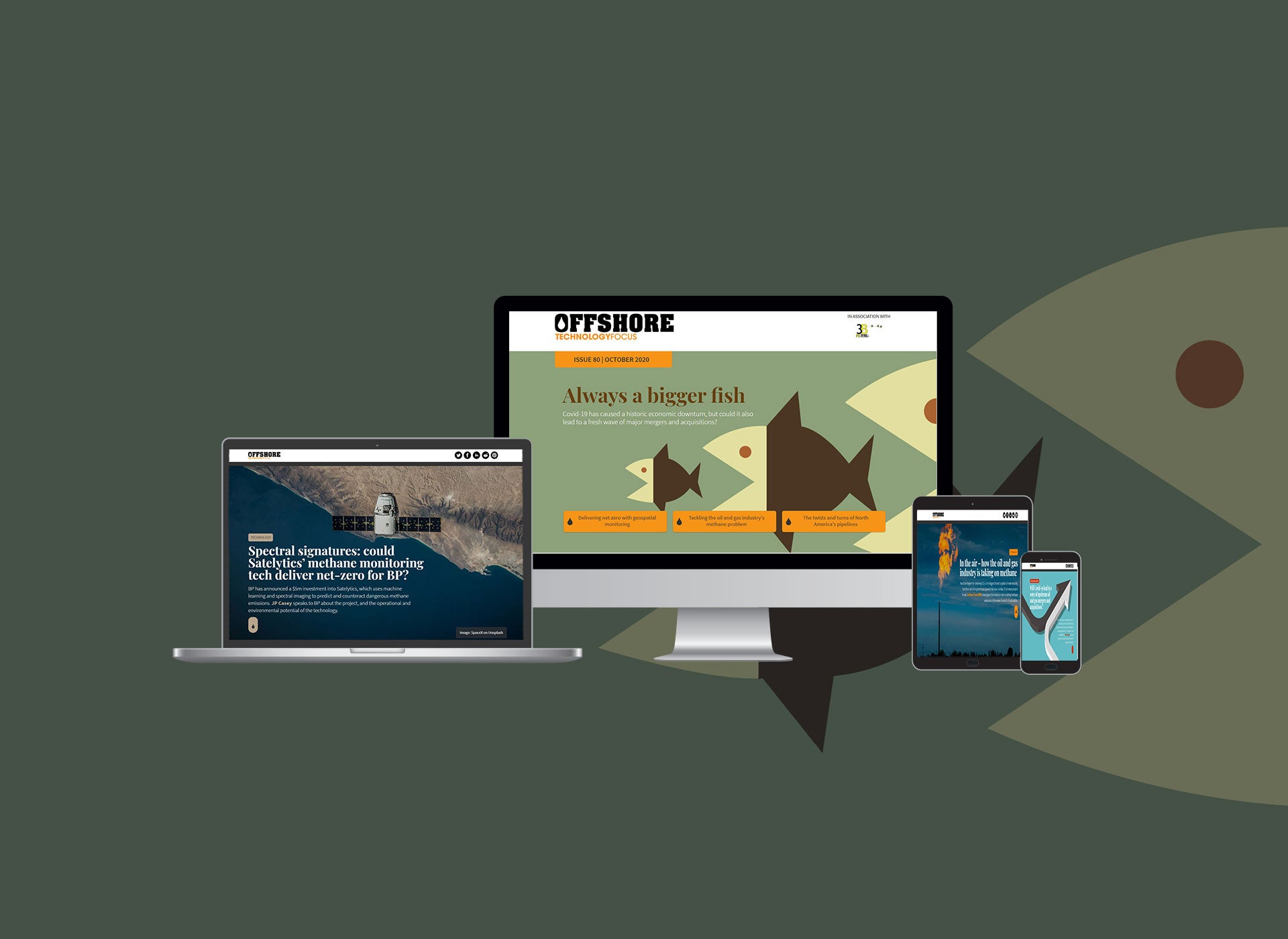
Oil major Chevron has entered into a definitive agreement to purchase all of Noble Energy’s outstanding shares at a valuation of $5bn. Some have speculated that this could be part of an oncoming wave of post-Covid M&As as majors look to snap up the assets of those unable to weather the pandemic. We investigate.
Also, in light of Subsea UK’s chief executive warning that subsea firms could turn their back on oil and gas work, we find out what the future looks like for the sector. And we talk to Legasea, the UK’s subsea company of the year, about their efforts to improve the industry’s sustainability.
Elsewhere, we learn about BP’s acquisition of geospatial analytics company Satelytics. We also ask what the offshore industry is doing about methane emissions.
Finally, we examine recent setbacks to US pipelines and what they mean for the country, hear from Ocean Infinity about their new Armada initiative and autonomy at scale, and talk to the developer of a new offshore marine facility in Singapore.
Whether you are on a desktop, tablet or smartphone, you can read the magazine for free online, and join the conversation on Twitter.

In this issue
Spectral signatures: could Satelytics’ methane monitoring tech deliver net-zero for BP?
BP has announced a $5m investment into Satelytics, which uses machine learning and spectral imaging to predict and counteract dangerous methane emissions. JP Casey speaks to BP about the project, and the operational and environmental potential of the technology.

Ocean Infinity: launching the autonomous Armada fleet
Next year Ocean Infinity plans to launch Armada, 15 low-carbon remotely operated surface vessels for inspection, data collection, and, in a first, unmanned offshore logistics, along with a new recruitment drive. Heidi Vella finds out more from Dan Hook, Armada’s managing director.

In the air – how the oil and gas industry is taking on methane
You’d be forgiven for believing CO2 is the biggest threat to global climate security, but there are other greenhouse gasses that pose a similar, if not more present threat. Andrew Tunnicliffe investigates the industry’s role in cutting methane emissions in the wake of recent critical studies.

Creating a circular economy for subsea equipment with Legasea
Aberdeenshire start-up Legasea recently scooped the Subsea Company of the Year accolade in the UK Enterprise Awards. Legasea takes liability and ownership for decommissioned subsea equipment, making it safe and clean, as well as disassembling it to its component parts, which are then sold back as spares. Alexander Love spoke to Legasea managing director Lewis Sim to find out more.

Drawing the line: could the subsea industry turn away from oil and gas?
External and internal pressures on the oil and gas industry have soured relations with the subsea sector, those responsible for providing critical hardware for oil and gas operations. With new opportunities for subsea companies outside of their traditional investments, JP Casey considers the future of the relationship between the oil and gas and subsea sectors.

The twists and turns of North America’s oil & gas pipelines
The US and Canadian Governments have been desperate to build new pipelines to ferry oil and gas from offshore developments for decades and at every twist and turn they have been met by legal challenges and protests thwarting their plans. Yoana Cholteeva maps out the development of some key oil and gas pipelines on the continent.

Will Covid-19 lead to a wave of upstream oil and gas mergers and acquisitions?
Covid-19 has inspired a worldwide downturn, and previous downturns have led to big opportunities for buyouts and selloffs between oil and gas companies. This downturn looks very different, so, Matt Farmer asks, will mergers and acquisitions stay the same for upstream companies?

Planning a new offshore hub for Singapore
Aurecon has been brought on board to conduct a feasibility study and conceptual design work for JTC Corporation’s new marine support facility, Offshore Marine Centre 2, along Singapore’s western Tuas coast. Scarlett Evans spoke to Lili Tao, managing director infrastructure at Aurecon, about the new facility.

Preview – Offshore Technology Focus December 2020
The Norwegian Government has proposed launching a $2.7bn carbon capture and storage project that, among other things, will involve funding for Equinor, Total, and Shell’s Northern Lights transport and storage project. We learn more about the proposal.
Also, as Shell looks to cut 40% from the cost of producing oil and gas, we find out what it takes, financially and operationally, to transition towards renewables. And we talk to Acoustic Data about their partnership with multinational oilfield services and their sonic gauge technology
Elsewhere, we profile Nigeria, with a focus on the bidding for the country’s marginal fields. We also examine possible changes to oil and gas licensing in the UK.
Finally, we investigate IBM’s partnership to accelerate digital innovation and open data standards across the energy sector, discover how Maersk plans to cut drilling operation emissions in half by 2030, and speak to Borehole Solutions about the benefits of rotary drilling.


